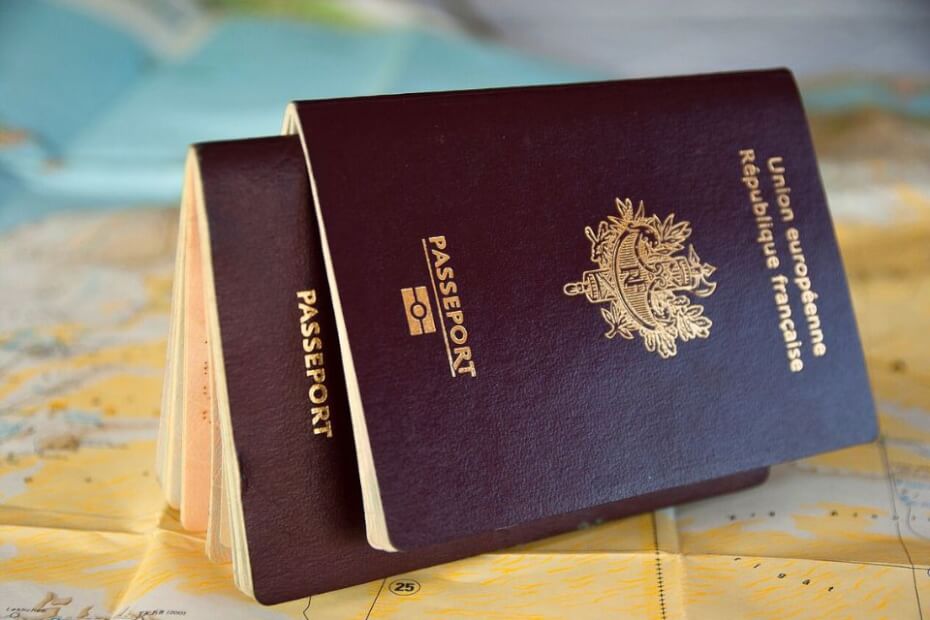
Before the United Kingdom (UK) left the European Union (EU) in 2020, British and EU citizens could freely travel across Europe. That all changed when the UK left the bloc, and it will undergo a significant change again in 2025.
The UK is expanding its new Electronic Travel Authorization (ETA) scheme to everyone who can visit the country without a visa. Starting April 2025, European nationals, except Irish citizens, must have an ETA before traveling to the UK.
Here’s how the UK’s new travel scheme affects travel across Europe.
1. All European nationals, except Irish citizens, must apply for and have an ETA before traveling to the UK.
The UK ETA is a requirement for all short trips to the UK, from less than a day to up to six months stay. It is mandatory whether the traveler visits the UK by plane, ferry, train, or coach. Everyone, including infants and children, must have an ETA or be denied boarding by their carrier.
Applying for an ETA requires paying £10 per application, submitting personal and passport details, and answering security questions. The process is entirely done online and can be completed within minutes.
Once granted, the ETA is valid for multiple trips over two years or until the passport it is linked to expires, whichever comes first.
To continue being allowed entry into the UK, they must reapply for an ETA once it or the passport linked to it expires.
If travelers change their passport details, such as if it is lost or stolen or they changed their name, they must reapply for an ETA using their updated passport information.
European nationals who can travel to the UK without a visa include citizens of the EU, the European Economic Area (EEA), and Switzerland. The only exemption from the EU countries is Ireland, which has its own agreement with the UK.
EU Member States include Austria, Belgium, Bulgaria, Croatia, Cyprus, Czech Republic, Denmark, Estonia, Finland, France, Germany, Greece, Hungary, Italy, Latvia, Lithuania, Luxembourg, Malta, Netherlands, Poland, Portugal, Romania, Slovakia, Slovenia, Spain, and Sweden.
The EEA comprises all the EU Member States, Iceland, Liechtenstein, and Norway. Switzerland is not part of the EU or the EEA but is part of the European Single Market. Its citizens have the same rights as EEA citizens.
Except for Irish citizens, citizens of these European countries must obtain an ETA before traveling to the UK.
The UK is no longer part of the EU.

After a UK-wide referendum in 2016, British citizens voted to leave the EU. In January 2021, the British exit, or Brexit, officially took effect.
Since then, the UK and its four constituent countries – England, Wales, Scotland, and Northern Ireland – have become a separate, independent union of states.
The UK no longer falls under EU law or the jurisdiction of the European Court of Justice, except for specific legislation concerning Northern Ireland. As a result, EU citizens are subject to UK immigration laws, while UK citizens are subject to EU immigration control.
In the same year Brexit took effect, the UK Home Office announced the UK ETA scheme, similar to those used by the United States (US), Canada, and Australia.
The ETA scheme aims to improve border security by allowing the government to pre-screen and vet travelers before they arrive. This will help identify potential risks and reduce illegal entry attempts.
It is designed to make travel to the UK more accessible and convenient. Since the ETA is not a visa, the application process is available online via the UK Government website or the UK ETA App.
With the ETA scheme, the UK Government can better understand all individuals entering and leaving the UK, with or without visas.
2. European nationals with long-stay visas and immigration statuses in the UK are exempt from the ETA scheme.

Europeans with long-stay biometric visas and immigration status in the UK do not need to present an ETA when visiting or re-entering the UK.
This includes those who plan to stay in the UK for more than six months for work or study. It also covers those with settled or pre-settled status under the European Union Settlement Scheme (EUSS).
Europeans with long-stay biometric visas and immigration status in the UK must be able to prove their right to enter and stay in the UK at the border.
The EU Settlement Scheme
The EU Settlement Scheme is the UK Home Office scheme that implements and upholds the citizens’ rights provisions of the Withdrawal Agreement.
The Withdrawal Agreement protects EU citizens lawfully residing in the UK and UK nationals living legally in any of the EU Member States at the end of the Brexit transition period on 31 December 2020.
It also covers EU citizens who moved to the UK and UK nationals who relocated to an EU Member State during the transition period.
The agreement ensures that these citizens and their families retain essentially the same rights they had before the UK left the EU. It guarantees they can continue to live, study, work, and travel freely between the UK and the EU.
The UK’s eVisa system
The UK is shifting to a fully digital immigration system. Europeans with long-stay biometric visas and immigration status can digitally prove their exemption to the ETA scheme.
Those with a UK Visas and Immigration (UKVI) account can access their biometric visa or immigration status via the eVisa or an online immigration record.
Their eVisa must be linked to their passport for easier checking at the border. Border officers can just scan their passports to view their permission. Keeping their eVisa and passport details up to date in their UKVI account is crucial to avoid issues at the border.
Those with physical immigration status documents, such as biometric residence permits (BRPs) and passport wet ink stamps or vignettes, can show them at the border to prove their right to enter and stay in the UK.
However, it’s important to note that all physical UK immigration documents, regardless of their expiry dates, will no longer be valid after 31 December 2024.
All long-stay biometric visa holders and those with immigration status in the UK must have a UKVI account by January 2025.
Still, Europeans are advised to still carry their physical immigration document when traveling abroad and re-entering the UK in 2025.
Frequently Asked Questions on the UK ETA and European Nationals

Below are some common questions that EU, EEA, and Swiss citizens traveling to the UK may have about the ETA.
Will European nationals require an ETA to visit the UK?
European nationals will require an ETA to visit the UK.
Since Brexit, the UK and the EU have had separate governing entities. Citizens of Iceland, Liechtenstein, Norway, Switzerland, and all EU countries except Ireland will require an ETA to travel to the UK.
The EU, Iceland, Liechtenstein, Norway, and Switzerland enjoy visa waiver status with the UK.
This means that UK citizens can travel to EU countries, Iceland, Liechtenstein, Norway, and Switzerland, without a visa for short stays of up to 90 days in a 180-day period.
Citizens of EU Member States, Iceland, Liechtenstein, Norway, and Switzerland can also visit the UK for up to six months without a visa.
Is the ETA just for the UK, and the ETIAS for Europe?
The UK ETA is separate from the EU’s European Travel Information and Authorization System (ETIAS). However, it is a similar travel authorization system intended for visa-exempt travelers.
Barring any more delays, the EU will launch the ETIAS for all non-EU nationals who do not need a visa to visit EU Member States, Iceland, Liechtenstein, Norway, and Switzerland.
British citizens, no longer considered EU citizens, will require an ETIAS before traveling to any of these countries.
When will European nationals be required to apply via the ETA scheme?
European nationals can start applying for an ETA on 5 March 2025. They must have an ETA before traveling to the UK on or after 2 April 2025.
Would European nationals need a visa to visit the UK?
European nationals, except Irish citizens, must also apply for a visa if they plan to stay longer than six months or work in the UK. They must also apply for a visa if denied an ETA.
The ETA is not a visa but a digital travel permit for all non-visa travelers visiting the UK for less than six months. This also includes individuals transiting in the UK regardless if they are going through border control.
While It’s rare that non-visa nationals are denied an ETA, it can happen. A traveler can be refused an ETA due to criminal history, past immigration breaches in the UK or elsewhere, and associations with illegal groups and organizations.
What’s the difference between an ETA and a UK Standard Visitor visa?
An ETA only grants permission to travel to the UK. It does not give the holder the right to enter the country.
All travelers will still need to seek “leave to enter” or permission to enter the UK at the border. This is done by passing through an electronic gate (eGate) or seeing a UK Border Force officer.
Why does it matter if an ETA or UK visa would be required for European nationals?
Applying for an ETA is faster, cheaper, and more convenient than applying for a UK visa. The latter takes longer, costs more, and involves a more complicated process.
A UK ETA costs £10 per application. A non-visa traveler only needs to apply for it once every two years and can use it multiple times for short stays of up to 6 months within the validity period.
Getting a UK ETA is also easier, as the application is entirely online. Travelers can receive their ETA anytime between minutes after submitting an application and three days later.
On the other hand, a UK Standard Visitor visa, valid for staying in the country for up to six months, costs £115. Other long-stay UK visitor visas, which allow for more extended stays, cost more.
Getting a UK visa can take about three weeks. You must submit several physical documents and undergo an in-person interview as early as three months before your intended travel.
I have a British passport and another passport for an EU Member State. Will I require an ETA?

You do not need an ETA if you travel to the UK using your British passport. However, if you use your EU Member State passport, you will need an ETA before coming to the UK.
Travelers with British passports, British Overseas Territory Citizen (BOTC) passports, and Irish passports are exempt from needing an ETA.
Can I travel to the EU with an EU passport and return to the UK with a British passport?
It’s possible to travel to the EU with an EU passport and return to the UK with a British passport. The UK government always advises British citizens to enter the country with their British passports.
I have an immigration status in the UK. Do I need an ETA?
Individuals with immigration statuses or permissions to enter, live, work, or study in the UK and those granted settled or pre-settled status under the EU Settlement Scheme (EUSS) do not need an ETA to travel to the UK. However, they must be able to show or prove their valid permission at the border.
I have residency status in an EU Member State. Do I need an ETA to travel to the UK?
Only legal residents of Ireland who are also visa-exempt nationals traveling to the UK via the Common Travel Area (CTA) are exempt from needing an ETA.
This means they must be able to prove they are lawful residents of Ireland, do not need a visa to visit the UK, and are traveling to the UK via Ireland, Guernsey, Jersey, or the Isle of Man. They must meet all three conditions to be exempt from the ETA system.
A residency permit issued by any EU Member State is valid in the EU and the Schengen Area. Since Brexit, EU residence permits have not been valid in the UK.
What happens if I have a criminal record or other history that may affect my admissibility?
If a visa-exempt traveler is denied an ETA due to criminal history, past immigration breaches, or association with illegal groups, he can apply for a UK visa to be allowed entry into the UK.
A traveler cannot appeal a UK ETA decision since it’s an automated system. There is no option for administrative review or appeal for decisions made on ETA applications.

